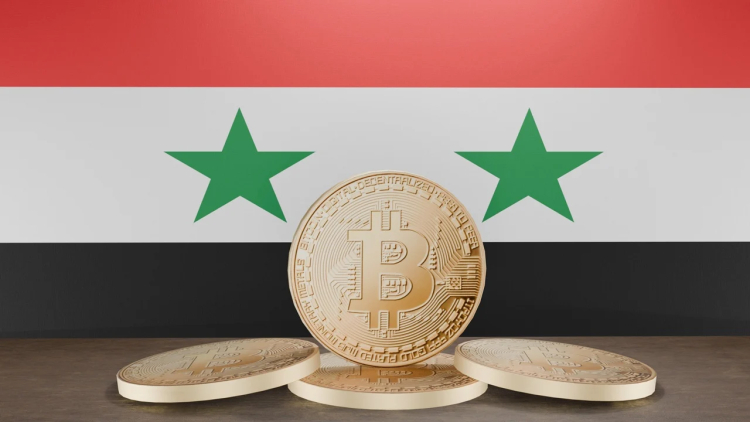Bitcoin to the Rescue? Syrian NGO Proposes Crypto Banking to Revive War-Torn Economy
Discover how a Syrian NGO proposes a Bitcoin-based banking system to rebuild Syria's war-torn economy, addressing inflation and fostering global integration.

Bitcoin to the Rescue? Syrian NGO Proposes Crypto Banking to Revive War-Torn Economy
Syrian Transitional Authority Seeks Legitimacy
A Syrian non-governmental organization (NGO) has proposed an innovative approach to rebuilding the country’s war-torn economy by adopting a banking system based on Bitcoin and related technologies. The Syrian Center for Economic Research (SCER) introduced the “Bitcoin Policy in Syria” as a way to expedite reconstruction efforts and protect citizens from inflation and currency devaluation.
The proposal comes as confidence in the Ahmed al-Sharaa-led transitional government grows. Following the ousting of former leader Bashar al-Assad in December 2024, al-Sharaa has made strides to assure the international community of his administration’s commitment to democratic principles. Notably, the United States recently removed a $10 million bounty on al-Sharaa and began diplomatic engagement with his administration and allied groups like Hayat Tahrir al-Sham.
This increased international recognition is vital for the new government, which requires significant funding to revive an economy ravaged by over a decade of civil war and sanctions.
Key Features of the Bitcoin Policy
The SCER’s policy framework includes:
-
Legalization of Cryptocurrency Activities: The Syrian government should introduce regulations to legalize the exchange, trading, and mining of Bitcoin (BTC) and other digital assets.
-
Digitization of the Syrian Pound: The proposal suggests digitizing the Syrian pound and backing it with a mix of assets, including U.S. dollars and Bitcoin, to stabilize its value.
-
Permission for Public Mining: Entrepreneurs should be allowed to mine Bitcoin using public energy resources, fostering local innovation and generating economic activity.
Challenges and Hurdles
While the policy offers a path to economic recovery, the SCER acknowledges significant challenges:
-
External Sanctions: Ongoing international sanctions could impede access to necessary technologies and financial systems.
-
Technical Barriers: Building the infrastructure for a crypto-based economy requires technical expertise and resources.
-
Debt from the Previous Regime: Al-Sharaa’s administration inherits significant financial liabilities, complicating new economic ventures.
Despite these obstacles, the SCER remains optimistic, citing the resilience of the Syrian people and their capacity for peaceful transformation. “We hope they will begin adopting this modern technology to keep pace with global economic transformation,” the organization stated.
Advocating for Responsible Policies
Beyond promoting Bitcoin adoption, the SCER urges the transitional government to:
-
Avoid Inflationary Practices: The policy advises against reliance on inflationary monetary policies that devalue the currency.
-
Reject Usurious Loans: To ensure long-term economic health, the government should avoid predatory financial practices.
-
Guarantee Digital Asset Custody: Citizens should have the right to full self-custody of their digital assets, safeguarding personal financial sovereignty.
A Modern Solution for a Complex Problem
As Syria faces the monumental task of rebuilding its economy, the SCER’s Bitcoin Policy offers a modern and potentially transformative approach. By leveraging the decentralized nature of cryptocurrency, the transitional government could foster economic stability, attract international investment, and provide Syrians with greater financial autonomy. While the road ahead is fraught with challenges, the proposed framework represents a bold step toward recovery and global reintegration.
What's Your Reaction?















